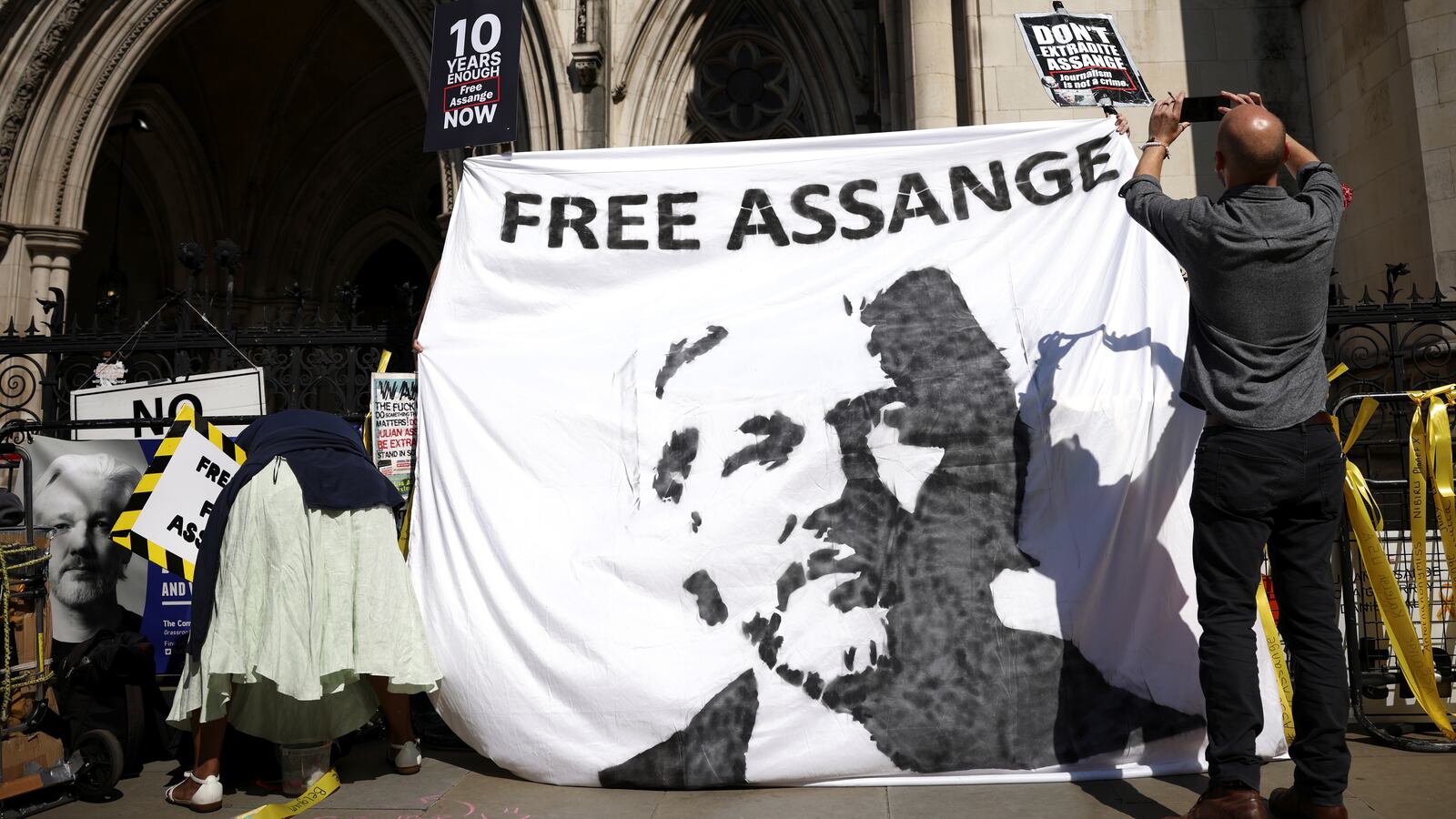Julian Assange is once again being threatened with extradition to the United States after a surprise decision by a British judge to re-examine potentially misleading evidence about the state of Assange’s mental health.
The U.S. government was given permission to expand its appeal against the decision to block Assange’s extradition on Wednesday after its lawyers argued that the decision was based on unreliable evidence.
Judge Vanessa Baraitser ruled in January that the WikiLeaks founder should not be extradited from Britain to the U.S. to face charges over the release of secret military documents because there was such a high chance that Assange would commit suicide in American custody.
Her conclusion was based on a report from psychiatric expert Prof. Michael Kopelman, who examined Assange ahead of the extradition hearing.
However, on Wednesday, Kopelman, the head of neuropsychiatry at King’s College London, was accused by U.S. lawyers of “willingly” misleading the court by not including his knowledge of Assange’s secret family in his evidence. Assange began a relationship with Stella Moris and fathered two kids while taking refuge in the Ecuadorian embassy in London.
“The prosecution had no idea Mr. Assange had a partner and small children until the defense made a bail application in March 2020, and Mr. Assange elected to deploy that information in support of the bail application,” said Clair Dobbin QC, who was representing the Justice Department.
“The prosecution knew the true nature of the relationship, but what we didn’t know was that Prof. Kopelman had known that all along and his first report needed to be looked at in a very different light,” Dobbin said. She added that it appears that the psychiatrist “was willing to subjugate his duty to the court to the interests of Mr. Assange’s family.”
Lord Justice Holroyde sided with the U.S. government lawyers, saying it’s fair to doubt the impartiality of Kopelman’s initial evidence, and ruling that the validity of his report can be questioned as part of the appeal.
Holroyde reportedly said in court on Wednesday, “By choosing to omit stating what he knew of [Assange’s] recent and current relationship with Ms. Moris and their children when expressing opinions on matters such as the effect of solitary confinement in the embassy and the risk of suicide, it is at least arguable that Professor Kopelman did not act in accordance with the declaration and the District Judge [Baraitser] erred in not taking that into account in her assessment of his reliability.”
Holroyde added, “Given the importance to the administration of justice of a court being able to rely on the impartiality of an expert witness, it’s arguable that more detailed and critical consideration should have been given to why [Kopelman’s] ‘understandable human response’ gave rise to a misleading report.”
Holroyde was referring to Baraitser’s conclusion that Kopelman’s initial failure to disclose that information was an “understandable human response” to finding out about Assange’s secret family.
The full appeal hearing is set for Oct. 27 and 28.
Assange is charged with a list of 18 federal crimes in the U.S., including conspiring to obtain and release hundreds of thousands of pages of top-secret government documents.






